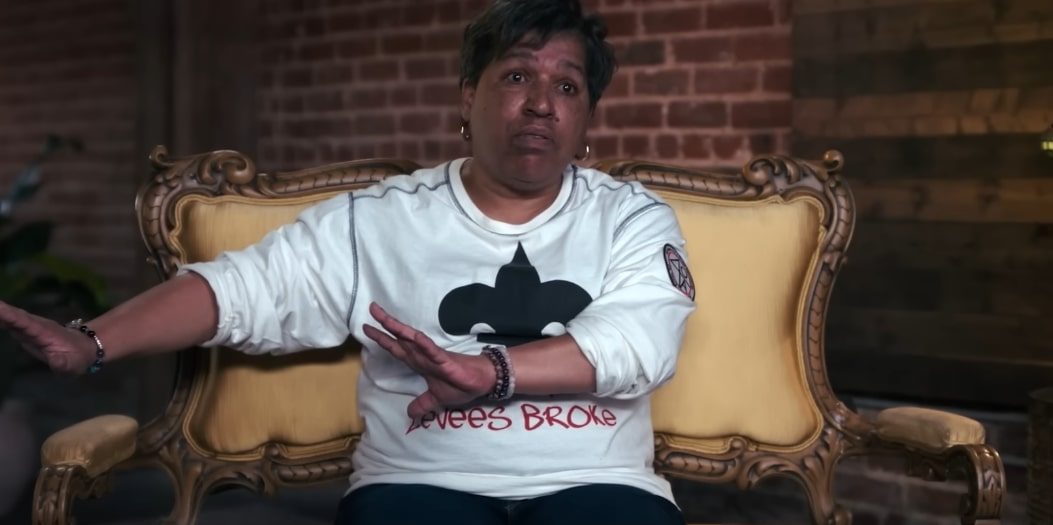Netflix’s ‘Katrina: Come Hell and High Water’ highlights the severe administrative and governmental shortcomings that left countless people stranded and helpless in the aftermath of Hurricane Katrina. The documentary gives a platform to survivors whose voices have become pivotal in demanding accountability and change in the region. Among them is Phyllis Montana-LeBlanc, who recounted her harrowing experience of enduring the disaster alongside her family. In the film, she not only shared the events as they unfolded but also delved into the profound socio-political changes that reshaped the community in the wake of the catastrophe.
Phyllis Montana-LeBlanc and Her Family Were Rescued by Helicopters After Hurricane Katrina
When Hurricane Katrina struck, Phyllis Montana-LeBlanc was living in New Orleans with her husband, her mother, her sister, and her young nephew, who was on the autism spectrum. As the storm intensified, she noticed water beginning to drip from the ceiling and immediately understood the gravity of the situation. Her greatest fear was for her mother and nephew, as neither of them could swim. Thinking quickly, she managed to get them onto cupboards and refrigerators as the water rose around them. What lay beyond their home were just two blocks, but to Phyllis, those blocks seemed insurmountable.
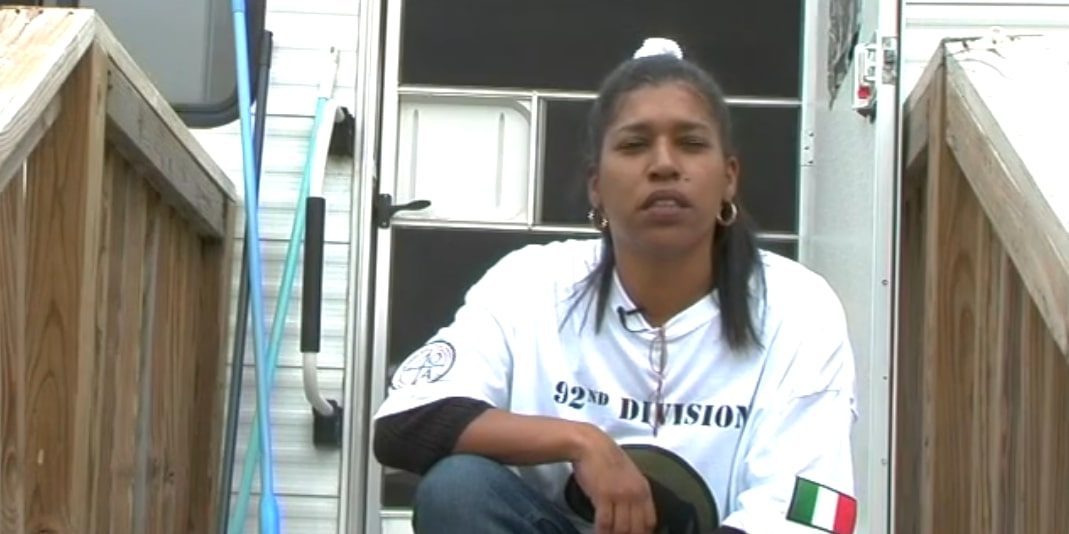
The floodwaters carried not just debris but also the threat of alligators and other creatures lurking unseen. The stench was overwhelming, yet she pushed those thoughts aside, and her focus was on survival. When the Coast Guard finally arrived, Phyllis watched in anguish as they rescued others first, fearing her family would be abandoned. But at last, their turn came. They were lifted from the devastation and taken to safety. That moment, she recalls, was a mixture of relief, exhaustion, and disbelief. As she left the Louis Armstrong New Orleans International Airport, she knew it was going to be a new life, but everything seemed too contorted at the moment.
Phyllis Montana-LeBlanc Has Made New Orleans Her Home Again
In the immediate aftermath of Hurricane Katrina, Phyllis Montana-LeBlanc relocated to Houston, Texas, where she and her husband, Ron LeBlanc, lived in a FEMA-provided trailer. During this time, she penned her powerful poem, ‘Not Just Levees,’ which is a deeply personal and socially conscious reflection on the devastation her family and community endured. The poem captures the heartbreak of loss, the anger at the slow government response, and the resilience of those determined to rebuild. Katrina’s aftermath profoundly changed her perspective on politics, inspiring her to become an active and vocal advocate for her community.
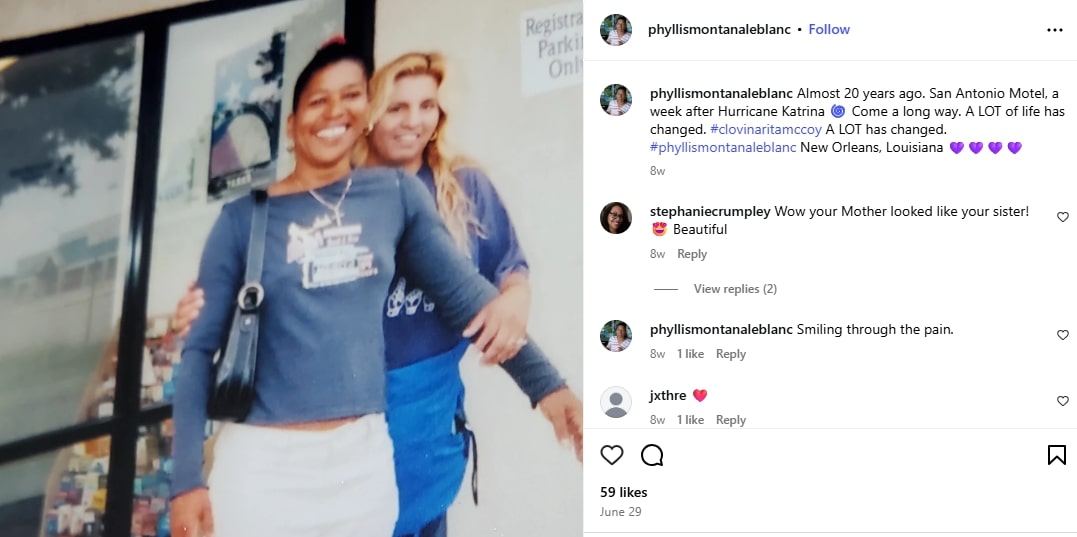
Her voice resonated so strongly that she became the first person interviewed for Spike Lee’s acclaimed documentary, ‘When the Levees Broke: A Requiem in Four Acts.’ By August 2008, Phyllis, her husband, and their beloved Yorkshire Terrier, Brooklyn, returned to their home in East New Orleans, Louisiana, where she continues to live. She has since shared her story in numerous interviews, expressing pride in the determination of those who reclaimed their neighborhoods, rebuilt their lives, and refused to let the disaster define them.
Phyllis Montana-LeBlanc is Loving Her Work in the Entertainment Industry Today
Phyllis Montana-LeBlanc has continued to evolve as an artist and as a person in the years since her breakout moment. After Spike Lee commissioned a second poem from her in 2010 for his documentary ‘If God Is Willing and da Creek Don’t Rise,’ she transitioned smoothly into acting. She landed the role of Desiree in the acclaimed TV series ‘Treme.’ This role opened doors for her, leading to appearances in films such as ‘The Paperboy,’ ‘Oldboy,’ and ‘Cat Run 2.’ More recently, she has had significant roles in projects like ‘She’s Gotta Have It’ and ‘Claws,’ and has demonstrated her versatility as an actor.
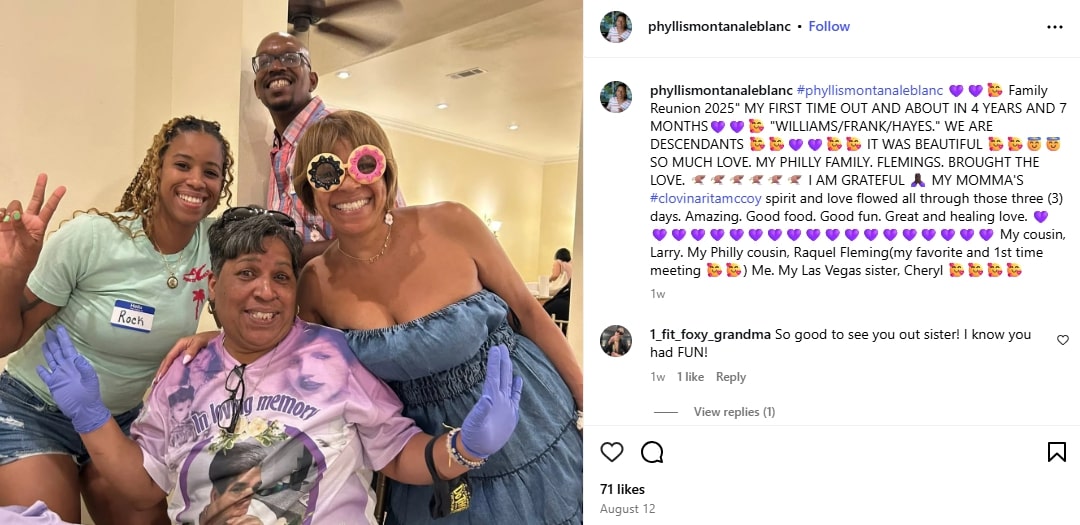
Interestingly, she has noted that while many actors start by auditioning and then find a breakthrough role, her career took the opposite path by beginning with a major breakthrough and now returning to auditions as she prepares herself for upcoming opportunities. Her personal life has seen its share of challenges, including the passing of her mother in 2021, which left a profound impact on her. She has openly shared how this loss changed her outlook and even prompted her to cut her hair as a symbolic act of coping and renewal. Despite the grief, Phyllis continues to stay connected to her friends and family, who matter the most. In August 2025, she organized a family reunion, which she was very excited about. She got to meet her extended family, and it culminated with reminiscing on the good days they had had and the more to come.
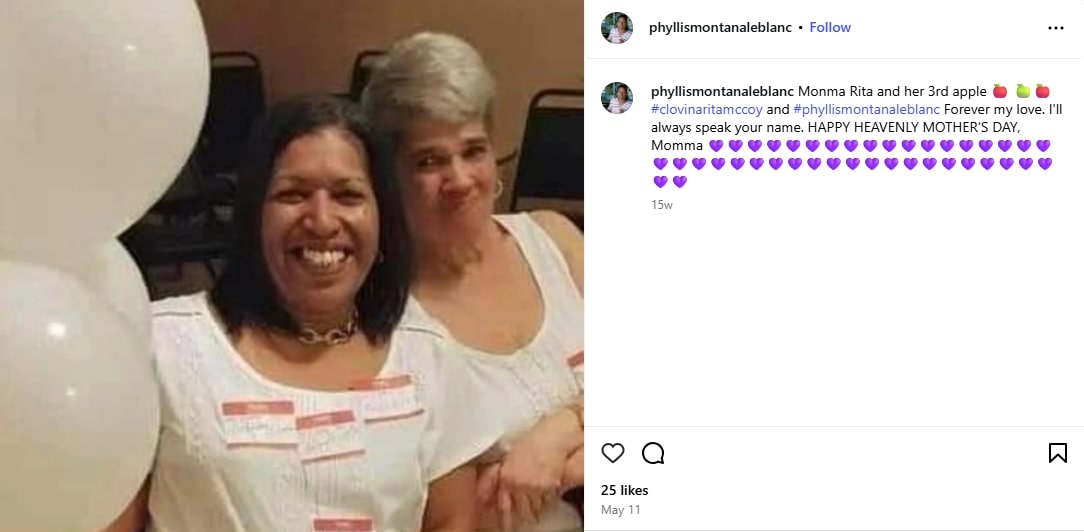
Phyllis is also known for being outspoken about her values, advocating for equality, justice, and compassion. She remains active in community discussions, believing in the power of raising one’s voice for what’s right. Whether or not she is still with her husband is unclear, but what’s certain is that Phyllis stands firm in her independence, creativity, and commitment to living freely while inspiring others through both her art and her stance.
Read More: Gralen Banks: Where is Katrina Survivor Now?

